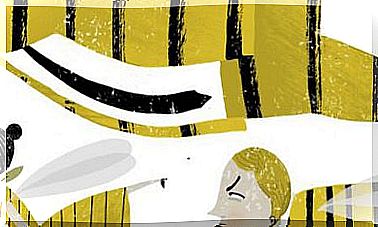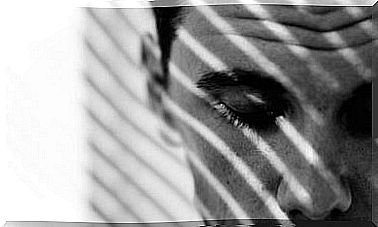In Therapy, Is It Convenient To Open Pandora’s Box Of Memories?
Although forgotten, traumatic memories continue to harm people in their present. The best way to heal them is by connecting with them and bringing the truth to the surface.

When beginning their psychological therapy, many people fear the possibility of discovering and exposing some traumatic event that is too overwhelming and painful.
It is a kind of fear of opening a Pandora’s box of memories that, when uncovered, lets out some terrifying monster from the past.
However, facing the truth, connecting with those memories, means finding the path to liberation.
What leads us to repress traumatic memories
The fear of exposing some traumatic event was what fueled Virginia’s reluctance when she came to my office.
In our first session, she told me that she had known for a long time that she needed help, but that she had put off therapy for years for fear of uncovering her past. His emotional situation had reached an untenable point and, therefore, he had decided to come to my office.
In these cases, I always like to explain to people how memory and forgetting work. As protection, to avoid the daily suffering that would be supposed to have them alive in memory, our unconscious blocks access to certain very painful memories.
This is a well-known resource for psychologists and, in fact, Anna Freud, in 1936, included this type of forgetting (or repression of memory) among her “defense mechanisms”.
While it is true that blocking bad memories avoids consciously suffering for them, the reality is that the negative effect they had on us in the past, still remains active in our present.
We suffer, then, a double suffering, that of the original trauma and that of not knowing its origin.
The problem persists because the root cause is still present. The truth, which always seeks to be expressed, has not seen the light and the consequences of that “forgotten” past continue to cause our current problems.
Our subconscious can hide memories
This was the case in Virginia. She lived blocked by her insecurities and also tormented by not knowing where they came from, or what she could do to overcome them. She had sought another, more directive type of advice to try to get some guidelines and thus deal with some difficult situations for her, but, in the end, she always felt overwhelmed by her discomfort again.
For Virginia the hidden truth was that she had spent most of her childhood alone. She hadn’t felt accompanied when she needed it most. Her parents worked all day and she used to spend most of the afternoons at home alone.
She came home alone from school, no one helped her with her homework and she had no one around to advise her when she had a conflict with her friends. She grew up alone and insecure.
However, in her first therapy sessions, Virginia related to me a happy childhood, in which her parents came to pick her up from school and played with her in the afternoons. These memories did happen, it is true, but they were almost anecdotal.
Most of the afternoons had been spent alone, but her mind had erased these sad memories and had enhanced the few pleasant moments in which her parents had indeed cared for her.
On many occasions, the truth is bleak, this is undeniable.
Many people have very complicated stories behind them, but no matter how bitter the past is, it is even harder to continue suffering in the present without being able to do anything to remedy it.
Releasing memories is healing
Although Virginia did not remember her thousands of hours of solitude, the destructive effect they had on her personality, was still very present in her life. She was a girl full of insecurities, especially when she had to interact with other people. She always doubted herself and didn’t know how to deal with conflict. He always ran away from them and ran to shelter at home.
The only way to get rid of problems for good is to open up and go deep into them.
To understand to what extent they affected us, it is necessary to remove the memories from oblivion and put them on the table. The truth that these memories tell us will help us understand our present.
Understanding the reality of our history is the only way we can heal. In any other way, even if we do not see them, we will continue to carry the memories on our backs and these will continue to affect us in the present.
Of course it was hard for Virginia to remember and acknowledge her childhood loneliness, but at the same time, it was tremendously liberating. At last, she was able to understand where her current difficulties were coming from and work to connect with herself. He was also able to free himself from his eternal feeling of loneliness and all the pain accumulated during so many years of emotional abandonment.









